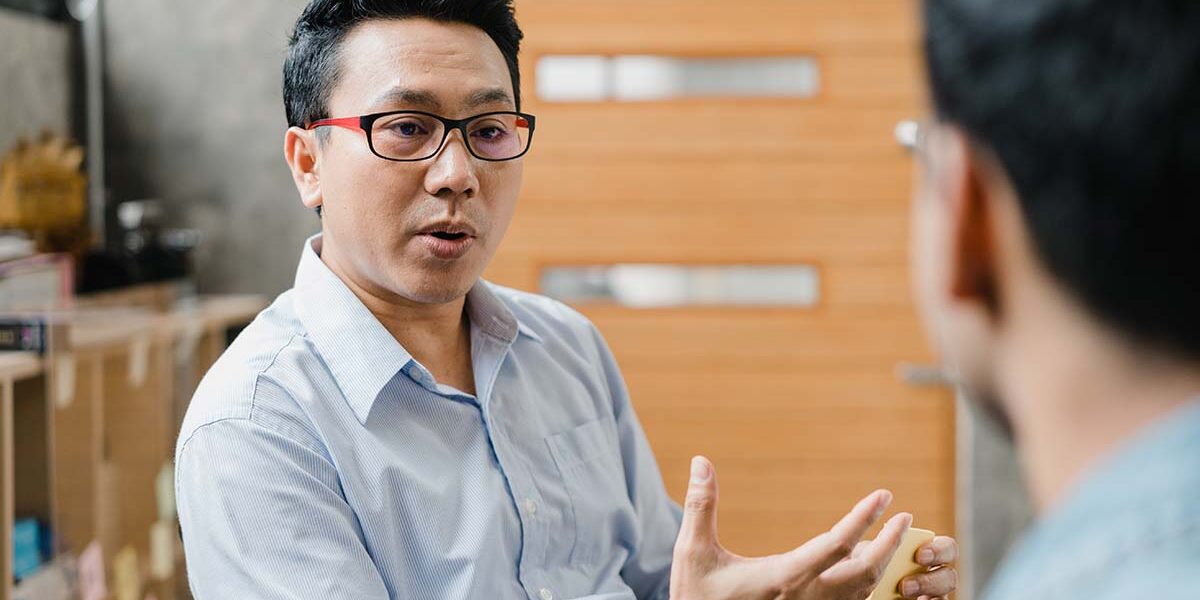Understanding a loved one’s addiction can be challenging. Addiction affects those who use substances and those close to them. Addiction can cause problems in all areas of life: physical, mental, emotional, social, and spiritual. Unfortunately, it can damage relationships between family members and friends. You want the best for your loved one, but addiction can make it difficult to know how to help.
If you’re struggling to understand addiction and your loved one’s addiction, there are some things you can do to gain a better understanding. If you have a loved one struggling with addiction, it’s essential to understand what addiction is and how it affects the person using substances and those around them. Our team at Crossroads can help you understand what your loved one is going through and any addiction treatment they may need. To learn more about how we can help, call us at 877.978.1667.
How to Help a Loved One with Addiction
Having someone that you care about go through addiction isn’t easy. While providing support is important, taking care of yourself is also essential. It’s not uncommon for people who have a loved one with an addiction to develop problems, such as anxiety or depression. Here are some tips on how to take care of yourself and your loved one:
- Learn about addiction – The more you understand addiction, the better you’ll be able to help your loved one.
- Talk to someone who can help – Whether it’s a friend, family member, therapist, or addiction specialist, talking to someone about what you’re going through can be helpful.
- Take care of yourself – Be sure to eat healthily, exercise, and get enough sleep. It’s also necessary to find ways to relax and unwind.
- Make time for your hobbies and interests – It’s easy to spend all of your time worrying about your loved one, but it’s crucial to make time for yourself, too.
- Reach out for help if you need it – If you’re struggling to cope, don’t hesitate to reach out for help from a professional.
If you’re looking for addiction treatment for your loved one, our team at Crossroads can help. To learn more about our services, call us at 877.978.1667.
First-Hand Experience with Addiction and a Loved One’s Addiction
Hearing another person’s experience with addiction could help you better understand your situation. The following excerpt is from the book “Broken: My Story of Addiction and Redemption” by William Cope Moyers.
My disease is less about the drugs I took than the reason I took them—to blot out pain, to alter reality, to change perception, to numb my fear—because the deepest truth of my illness is my inability to live with what is right here, right in front of me. Accepting life on life’s terms—that’s the challenge. Even as I stay sober, my dreams remind me of my relentless yearning to go back to the myth of what once was or to reach out for some imaginary heaven that lies just in front of me, out of my reach.
Backward or forward, it doesn’t matter as long as I don’t have to live in the pain of this moment. But when you’re trying to escape pain, there’s only one thing more difficult than living life drunk, and that’s living life sober.
In the book, Moyers talks about his struggles with addiction and being the son of acclaimed journalist Bill Moyers. While many of us may be affected by a loved one’s addiction to drugs or alcohol, we don’t always understand it. We don’t know why addicted people can’t stop and keep hurting themselves and those around them. Addiction crosses all economic, racial, gender, age, and social boundaries. It affects the addicted person and all who surround that person—at work, home, and the community.
You may feel helpless, frustrated, and confused if you have a loved one addicted to drugs or alcohol. However, you are not alone. Addiction is a disease that affects the entire family, but help is available. Alcoholics Anonymous (AA) and Narcotics Anonymous (NA) are two organizations that offer support to families and friends of addicts.
How to Navigate Addiction and Loved One’s Addiction at Crossroads
If you are searching for more information and resources on how to navigate your loved one’s addiction, Crossroads can help. Our addiction specialists are here to provide you with the support and resources you need. We offer a variety of addiction services, including:
- Residential women’s treatment center
- Rehab for women with children
- Alcohol addiction treatment center
- Drug addiction treatment center
- Trauma therapy
- Cognitive-behavioral therapy (CBT)
- Dialectical behavior therapy (DBT)
Call us today at 877.978.1667.


















